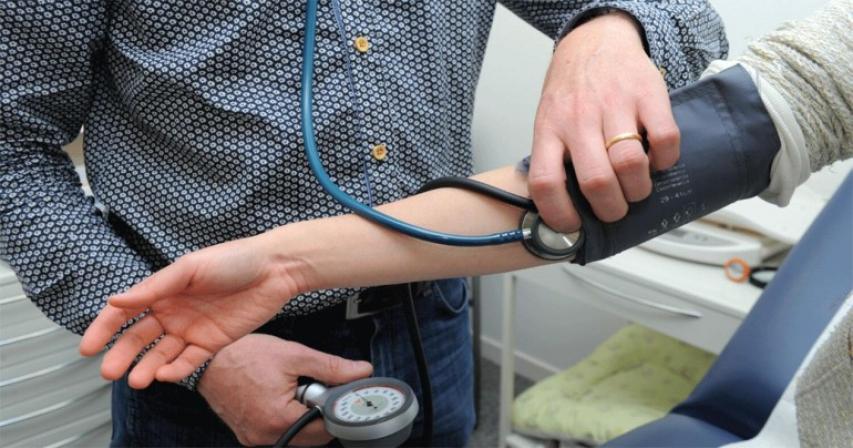UAE doctors warn of silent killer high blood pressure

There have been some changes in the management of patients suffering from high blood pressure in the UAE due to the new directives issued by the European Society of Cardiology (ESC).
“Among the international clinical standards put together by a number of prominent organisations, a blood pressure (BP) of 120/70 mmHg is off the norm, and any blood pressure above 140/90 mmHg is hypertension.”
Dr. Sachin Upadhyaya, a cardiologist at Aster Hospital Mankhool, explained this. As he put it, “Anyone who lies between these two ranges was not treated through medication in the past.”
“All they were told was to change their habits, but these days’ new guidelines allow us to pharmacologically treat such patients after a scoring system identifies them as having high cardiovascular risk.”
Guidelines that were issued in August also created a new category of ‘Elevated BP’ or High Blood Pressure. This is when the systolic blood pressure ranges between 120-139 mmHg and diastolic blood pressure levels between 70-89.
Dr Sachin stated here that the new recommendations come in very handy to the doctors so that their patients can be taken care of. “Blood pressure is a silent killer,” he said. “Sixty-seven per cent of stroke cases happen because of high blood pressure, fifty per cent of heart diseases and heart attacks that happen are because of high blood pressure as well. So, the importance of having elevated blood pressure is very high.”
“Most importantly, the objective of these guidelines is to seek individuals who were previously thought to be normotensive or borderline hypertensive. This helps us identify individuals who are at high cardiovascular risk from this group so that appropriate management can be instituted to prevent further complications,” he noted.
'Besides, the other triggers that are used in the above include treating all of them to offer benefits. It helps to protect the brain, the heart and the kidneys.'
Early detection
The guidelines assisted in the prompt recognition and management of adverse conditions, said Dr Ashraf M. Al Azzoni, Staff Physician at the Cardiovascular Medicine Department, Heart Vascular and Thoracic Institute-Cleveland Clinic Abu Dhabi.
He indicated that “these guidelines help doctors to take care of the problems without waiting for these problems to take years when hypertension has been damaged to the organs.” “This would help in early initiation of treatment of them. It will also enable the doctor to advise them on lifestyle modifications, as well as providing tight monitoring of their blood pressure.”
His partner in practice, Dr Ronney Shantouf, commented that the new initiatives make physicians and patients more cautious in their approach towards hypertension. “If the figure 140 is the upper limit, then patients would feel comfortable with figures like 145 – or even 150,” he noted. “If the number is set nearer to 120, for instance, it is possible that they think something and certainly watch their blood pressure a great deal.”
Dr Sachin further added that he has seen many young people with high blood pressure. “All-time high in an older person is acceptable, but now we are witnessing a growing number of younger people with high blood pressure,” he remarked. “And this is due to two reasons, an unhealthy lifestyle – which increases cardiovascular risk – and sympathetic overdrive. More sympathetic overdrive in the body means more weight gain and a few other problems too.”






Comments